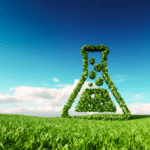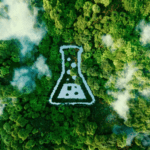Council adopts position on new regulations for detergents in the internal market
On 14th June 2024, the European Council adopted a position on the proposal for a new detergent regulation. The proposal for the new detergent regulation was submitted in spring of 2023 by the European Commission with the intention of replacing the current regulation on detergents (EC) No. 648/2004.
Contributing to this is the drastic increase in the global use of cleaning products for professional and household purposes due to consumer awareness and changing habits. The rapid growth in the use of these products required manufacturers to rapidly up-scale their manufacturing processes. This has brought about the increased requirements for sustainable detergents, not just through detergent regulations, but also through consumer-led demand for greener cleaning products.
The new detergent rules aim to simplify current rules for the sale and free movement of detergents in the EU, and improve the safety and sustainability of detergent use in the EU. Several improvements and modifications have been introduced in the detergent regulation, with the intention of ensuring consistency with existing EU legislation.
A Digital Product Passport (DPP) for detergents is also introduced, which is aligned with the Ecodesign regulation and Toy Safety regulation to streamline requirements and reduce administrative burdens for manufacturers.
Key points of the proposal include removing outdated rules for detergents to reduce regulatory burden while maintaining health and environmental protection. Additionally, a new voluntary digital labelling scheme in the detergent regulation aims to enhance the clarity and accessibility of product information. Detergents sold in bulk must now have physical labels to comply with existing rules for detergents. The Digital Product Passport (DPP) will replace the EU declaration of conformity, mandating specific technical requirements for product passports under new ecodesign regulations. In the new detergent regulations, biodegradability requirements for organic detergent ingredients will be emphasized, with new criteria introduced based on scientific evidence. There will also be harmonized rules for detergents aimed at microbial cleaning products, which will align with the EU Ecolabel Regulation. Additionally, the list of allergenic fragrances will be updated with new risk-based concentration limits, and there will be new labeling requirements for preservatives to ensure better health protection.
Some of the key points of the proposal for new detergent regulations are summarised in the below table.
| Main provision | Description |
| Remove outdated/redundant requirements | Remove redundant regulatory overlaps to ease regulatory burden without jeopardising the current level of health and environmental protection. |
| Voluntary digital labelling scheme | Consistent with the digitalisation of chemicals’ labels under the CLP Regulation and Fertilising Products Regulation revisions, with the aim to improve ease of use and awareness; make essential information remaining on the physical label clearer, and add benefits for visually impaired users. |
| Rules for detergents sold in bulk | When detergents are sold in bulk in refilling stations, consumers should receive a physical rather than digital label, in line with the CLP Regulation. |
| Digital Product Passport (DPP) | Replaces the EU declaration of conformity (Decision 768/2008/EC) with the obligation for detergents and surfactants to have a Digital Product Passport, and meet the same technical requirements for a product passport under the ecodesign for sustainable products regulation. |
| Biodegradability requirements | Importance of biodegradability requirements for organic detergent ingredients is outlined in the negotiating mandate. Requirements for substances and mixtures other than surfactants in detergents/ detergent capsules to be introduced when new scientific evidence requires it. Specific requirements are laid out in Article 4 and Annex I of the proposal. |
| New measures for microbial cleaning products | Introduction of harmonised rules for microbial cleaning products. Will be consistent with the voluntary scheme provided by the EU Ecolabel Regulation. |
| Phosphorous limits | Harmonised limits on the content of phosphates and phosphorus compounds in consumer laundry and automatic dishwasher detergents, due to concerns over damage to ecosystems and aquatic environments. Limits are listed in Annex III of the proposal. |
| Updated list of allergenic fragrances | Amending the limit of the allergenic fragrances when individual risk-based concentration limits for fragrance allergens are established under Regulation (EC) No 1223/2009. Commission shall adopt delegated acts to adapt the limit of the allergenic fragrances listed in Annex III. |
| Labelling requirements for preservatives | Additional labelling requirements to ensure a high level of health protection. Should include intentionally added and ‘carry-over’ preservatives. |
The proposal for new detergent regulation is expected to be negotiated further between the European Council, the European Parliament, and the EU Commission in Q4 of 2024.
For more information on the rules for detergents, consult the European Council website.
To achieve compliance with the new detergent regulations, explore the chemical, allergen, and biodegradability testing offered by Eurofins.
Eurofins Sustainability Services is also prepared to support customers with Digital Product Passports. For more information on Digital Product Passports, download and read our white paper.





